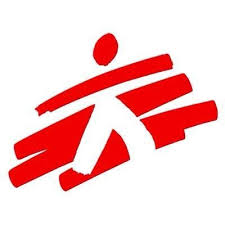JIUNGE NASI WHATSAPP TU FOLLOW. BONYEZA HAPA Job Opportunity at Médecins Sans Frontières (MSF) – ENTOMOLOGIST
Title: ENTOMOLOGISTReporting to: MEDICAL TEAM LEADERLocation: NDUTA CAMPFOR NATIONAL STAFF ONLYINTRODUCTION:
Job Opportunity at Médecins Sans Frontières (MSF) – ENTOMOLOGIST Médecins Sans Frontières (MSF) is an international, independent, medical humanitarian organisation that delivers emergency aid to people affected by armed conflict, epidemics, natural disasters and exclusion from healthcare. MSF offers assistance to people based on need, irrespective of race, religion, gender or political affiliation. MSF is therefore guided by the principles of neutrality and impartiality. These principles must apply to all MSF staff.
- Essential: Bachelor degree in Entomology or a relevant field with previous experience in the field
- Essential: minimum 1 year in a similar position (Entomology, Vector Control Activities)
- Desirable: previous experience in the field of humanitarian aid with MSF or other NGOs
- Professional work experience in a developing country desirable
- Essential: minimum 1 year Staff Supervision & Activity Management experience
- Essential Technical skills: Computer literacy (Word & Excel); Reporting skills and research methodology
- Fluent Swahili & English are required. French & Kirundi will be an asset.
- Organizing, implementing and designing the aspects related to understanding the malaria vector in the project according to MSF’s protocols, tools and procedures in order to ensure quality medical care in the community and improve the population’s health condition
- Results and Quality Orientation, Teamwork and Cooperation, Behavioural Flexibility, Commitment to MSF Principles, Stress Management
- Understanding of MSF’s principles and values
- Knowing the national anti-Vector control policy and ensuring that actions comply with this strategy. Improving understanding of the malaria vector in MSF interventions areas: behaviour, strength, transmission, mapping, seasonality. Reviewing existing studies in the field (if any), and coordination sites on malaria to gain an overall impression. Contributing to the understanding of malaria transmission by performing an environmental assessment of the alert site.
- In collaboration with the epidemiologist and or PMR, defining the areas with high morbidity and most affected by malaria and helping in making appropriate decisions, which includes part of vector control. Interpreting the increase in malaria cases in the surveillance zones using information on understanding the vector, coping mechanisms, etc. and participating in exploratory missions in regular projects or outside the province as needed, giving the necessary support to the identification of relevant data
- Defining, planning and organizing the annual plan of entomological activities in close collaboration with other team members and the budget associated therewith, in order to improve the effectiveness of vector control responses. Identifying and proposing operational research themes in line with the medical department and WHS
- Proposing anti Vector control approaches and practices in prevention adapted to the context, including (if applicable) strategies as intra house spraying, or other actions not already done by MSF. An effort should be made to incorporate more innovative and sustainable actions, respectful with the environment
- Performing vector trapping and identification, as well as vector packaging, transportation and other tests as needed
- Monitoring mosquito resistance to different insecticides, establishing better products and implementing strategies to reduce the creation of resistance in the country
- Supporting the PMR and medical coordination in the analysis and interpretation of data collected, focusing on the vector. This allows taking the most appropriate decisions regarding the establishment of vector control interventions. Together with the epidemiologist, submitting a concept note for research topics in the field of malaria.




Be the first to comment